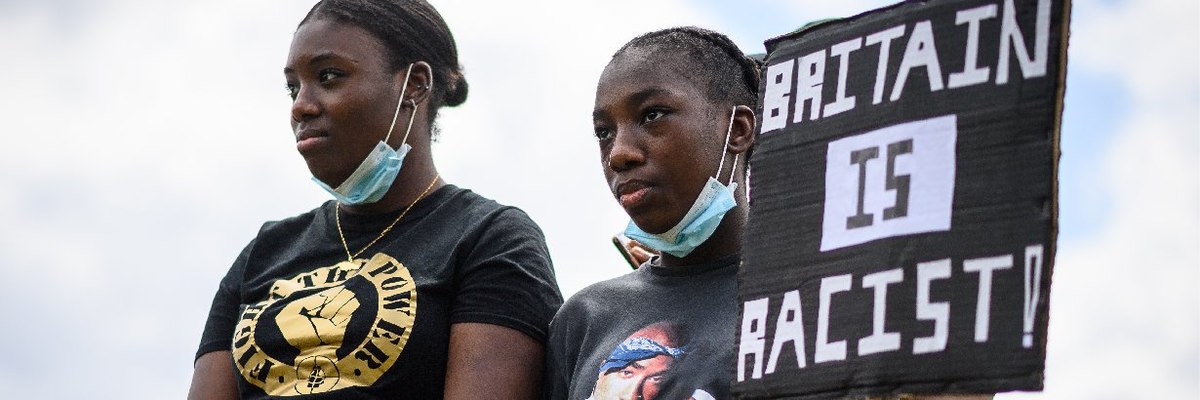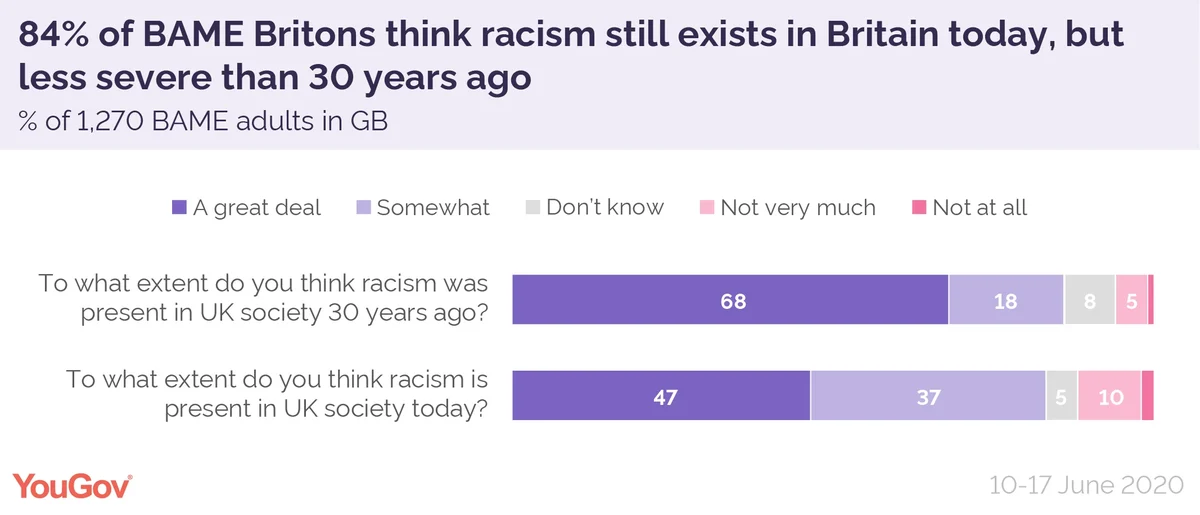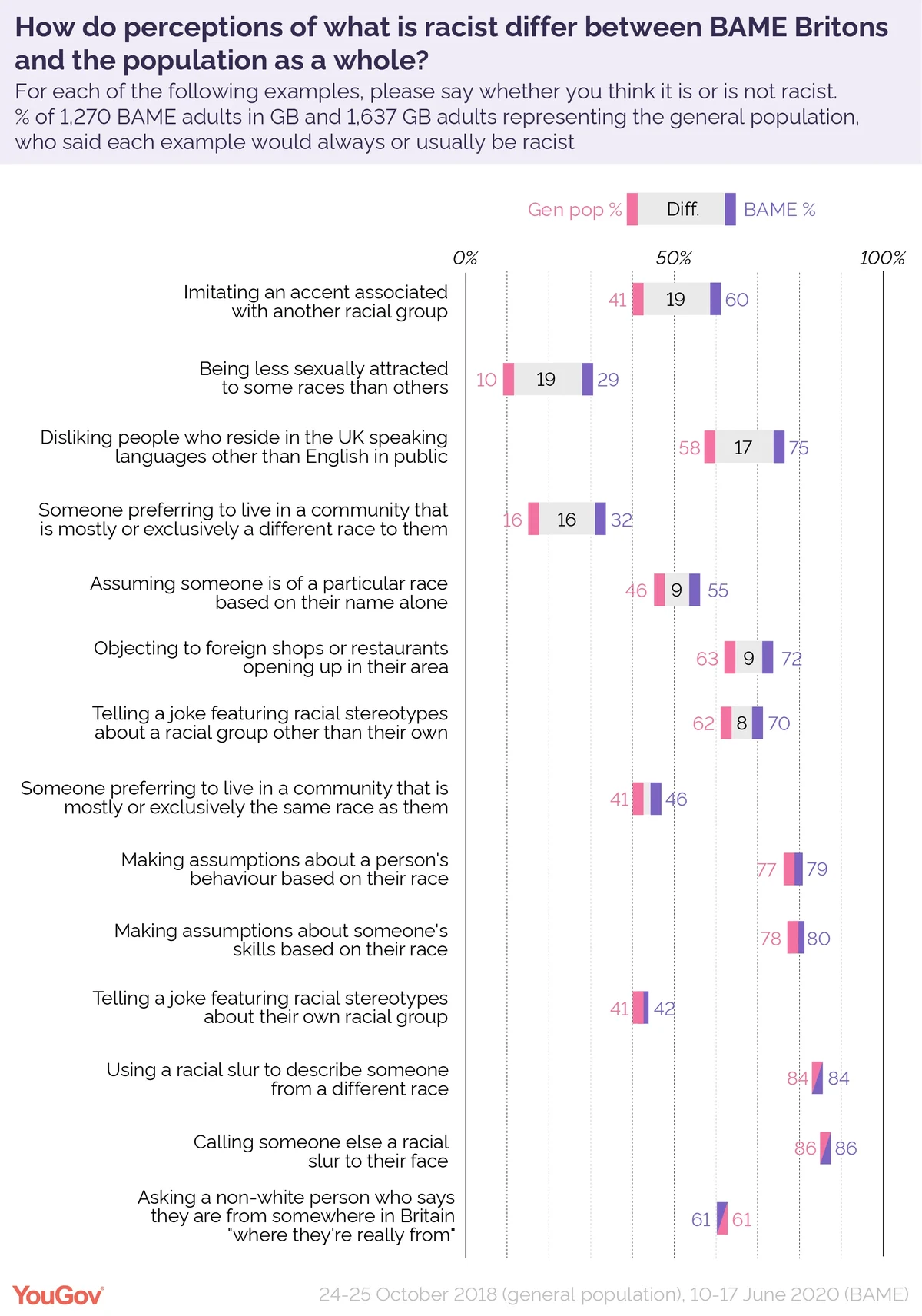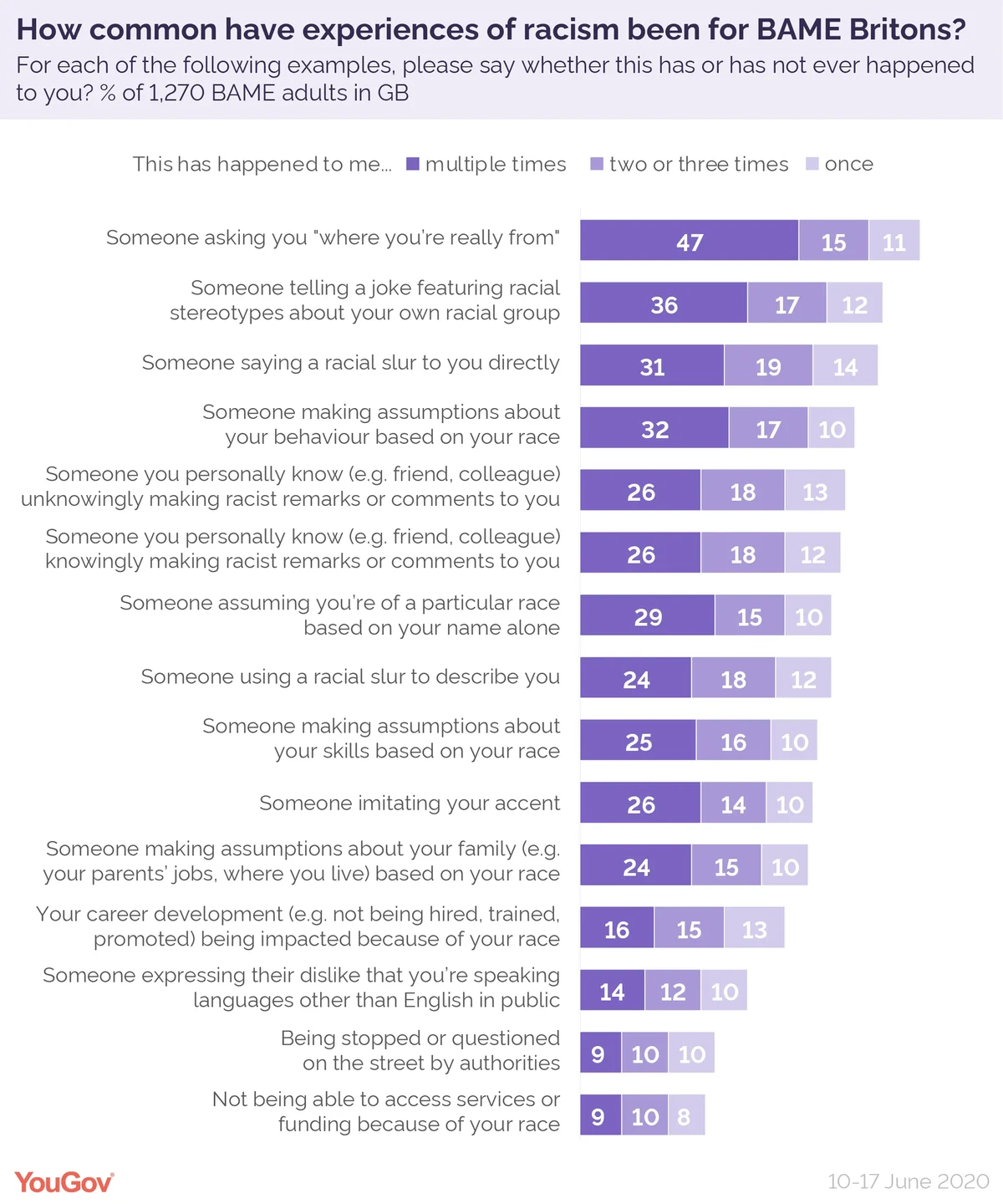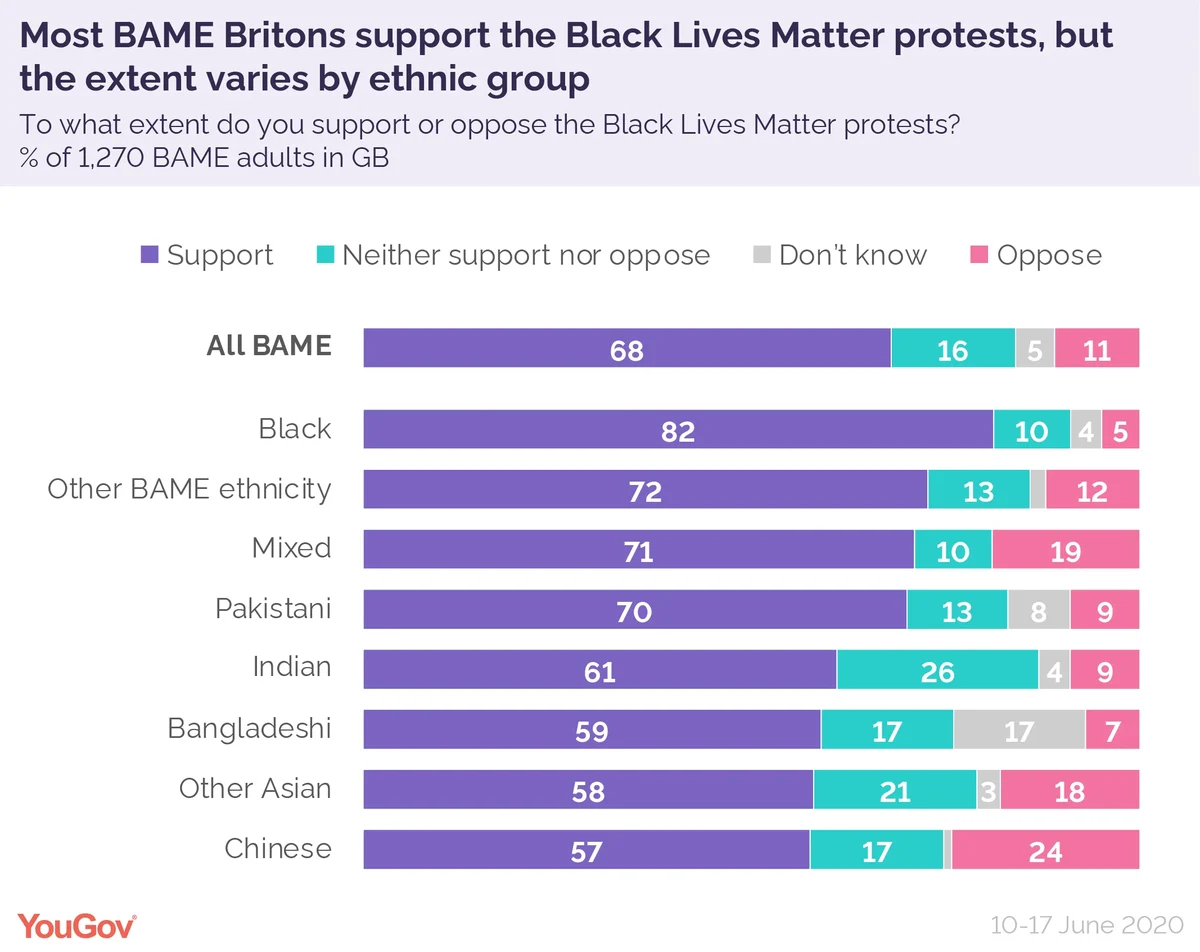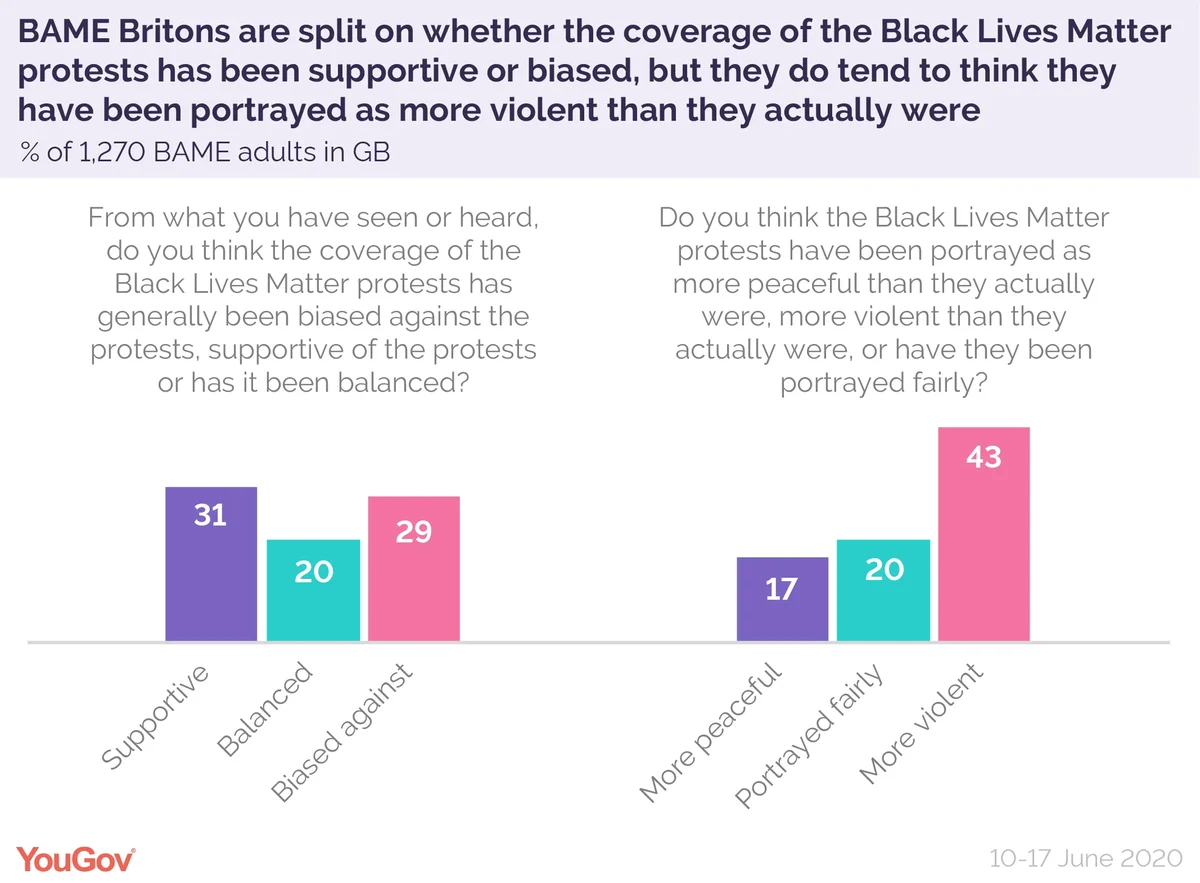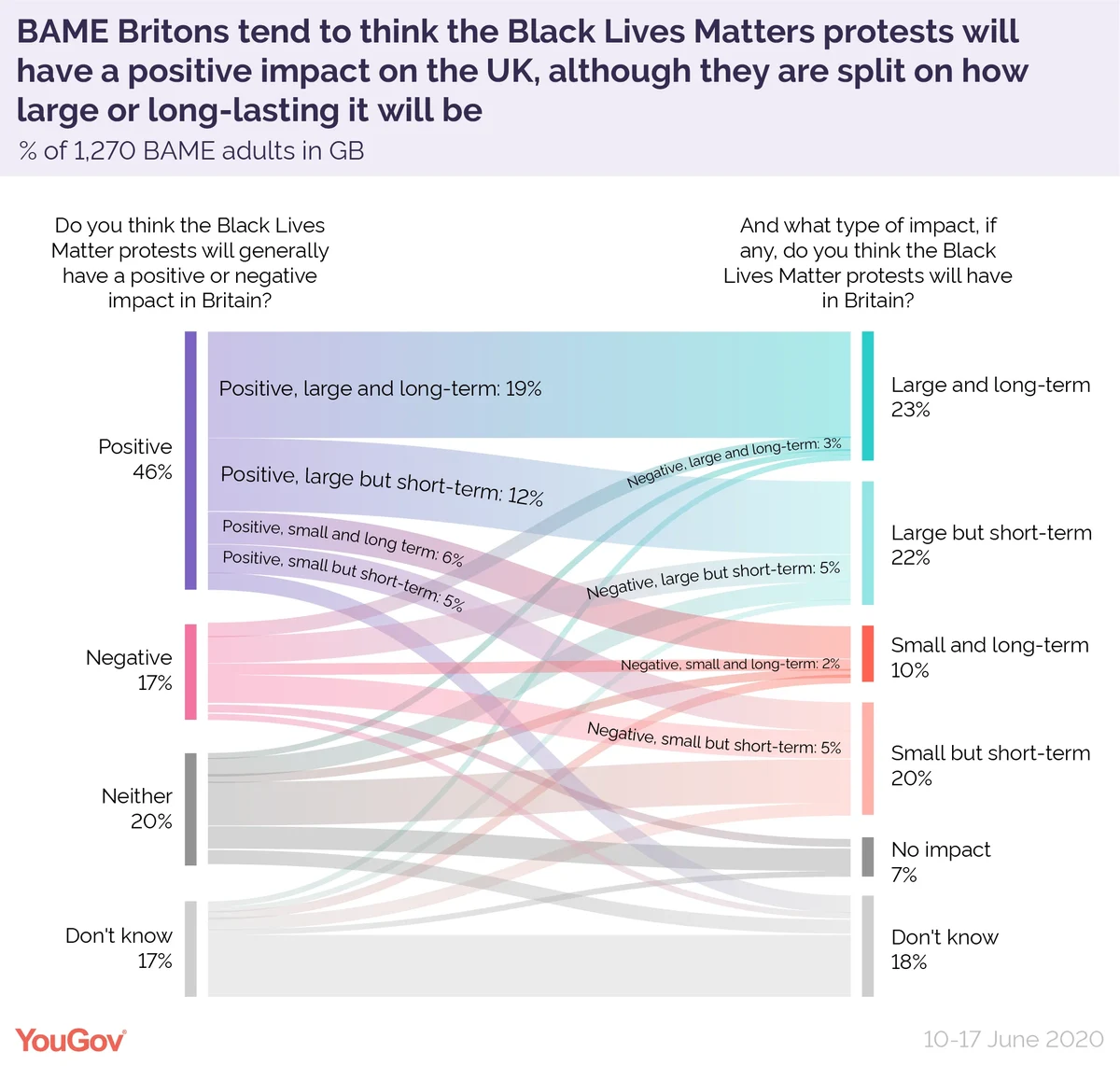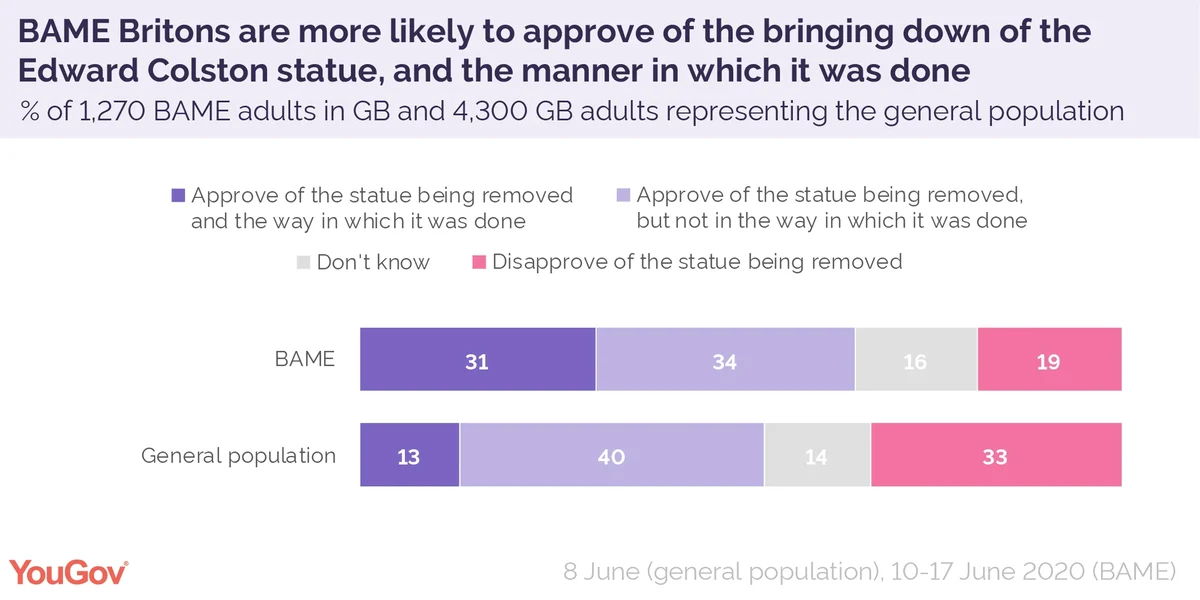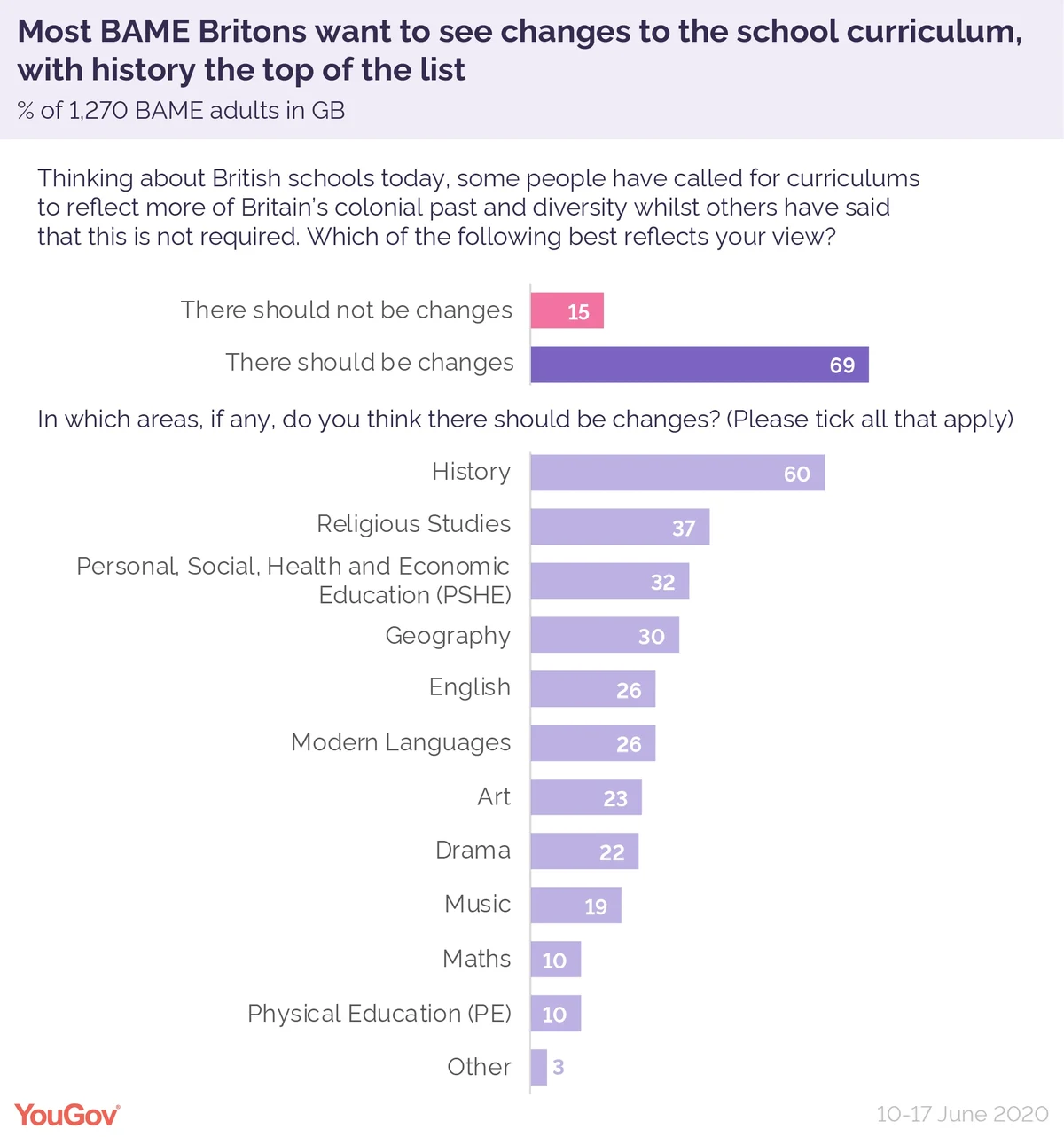With Black Lives Matter protests dominating headlines, YouGov research reveals that Black, Asian and minority ethnic adults in Britain today believe racism has not reduced in the last three decades
YouGov interviewed over 1,200 BAME Britons, including people from Black, Asian, Mixed and other non-White backgrounds, about issues of race today and in the past. Worrying results show that virtually identical numbers of people believe racism exists in the country today (84%) as believe it existed 30 years ago (86%). Not only does this figure show that the issue is a problem in the eyes of an overwhelming number of Britons from ethnic minorities, but also that it does not seem to be reducing over time.
However, there is a noticeable difference in severity; seven in ten (68%) think racism was present to ‘a great deal’ in UK society 30 years ago, and this has fallen to 47% today. This suggests that the type of racism people experience or witness has changed over time.
Among Black Britons the trend is slightly reversed; 91% recognise its overall presence 30 years ago, and 94% continue to identify it in today’s society. This is perhaps a temporary rise linked to the current Black Lives Matter protests.
Interestingly, the older a person is, the more likely they are to say that there was a “great deal” of racism 30 years ago. Among those aged 18 to 24 this response was given by 63% of people, and this rises to 67% among 25 to 49 year olds, 73% among 50 to 64-year-olds and 75% of those over 65. This is perhaps indicative of younger Britons underestimating levels of racism, compared to people who actually lived through that time.
Our survey reveals that race has a greater impact than age or gender on how people are perceived and treated. Nearly two in three (64%) said they are treated differently, rising to 79% of Black and 70% of Chinese respondents.
What counts as racist, and how often does it happen?
But what exactly do people count as racist? We can compare results from this latest survey to a previous report on a representative sample of Britons of all races, and see where opinion differs.
Most notably, there is a 20-point difference between BAME respondents who think imitating an accent is racist (60%) and the wider population (41%).
Three in four BAME respondents (75%) think it is racist to dislike people who live in the UK and speak other languages in public, compared to just 58% of Britons in general.
We also asked how many BAME Britons have experienced racism directly: 74% have had someone ask “where you’re really from?” and 64% have had a racial slur directed at them. Some 65% have witnessed someone telling a joke featuring a racial stereotype about their own race.
More than half (52%) have been on the receiving end of assumptions based on race, 44% have experienced an impact on their career and 27% say their race impeded access to services or funding. A quarter (29%) have been stopped or questioned on the street by authorities, with 9% citing it has happened multiple times.
When asked about the Metropolitan police today, one in two (50%) think it is institutionally racist; seven in ten Black Britons (69%) share this view compared to around half of other BAME groups.
Black Lives Matter
In the last few weeks protests against the killing of George Floyd whilst under police restraint in the US have spread around the world, including Britain. The majority of BAME respondents polled did not participate in the Black Lives Matter protests (74%) but small groups took part in other ways, for example on social media during the most recent protests (14%).
Despite the low participation, seven in ten (68%) support the demonstrations, with younger people doing so more strongly (76% of those aged 18 to 24) than their older counterparts (66% of those aged over 65). Whilst the majority of all BAME groups back the campaign, support varies from 57% amongst those of Chinese ethnicity to 82% of Black people.
The media coverage has been extensive, but only 51% of respondents thought it has been fair. Some 43% said that the protests had been portrayed as more violent than they actually were. Just over a quarter (29%) think the coverage has been biased against the protests, whilst 31% consider it to have been supportive.
When asked about the impact of the Black Lives Matter protests, 46% think it will have a positive influence overall. A fifth are either ambivalent (20%) or think the protests will have a negative impact (17%).
During the protests, a statue of Edward Colston was thrown into a harbour in Bristol by anti-racism protestors, due to his involvement in the slave trade. Two in three support its removal; of this, 31% approve of how it was removed, whilst 34% think another method would have been preferable.
On a wider level, over half (56%) support the removal of all statues linked to slavery from British towns and cities; just 19% oppose this.
Two in five are now educating themselves about race issues
Perhaps as a result of the protests, 43% say they are listening to and reading more about issues related to racism now than before. Half of 18 to 24 year olds (49%) and Black people (48%) share this view.
Over half think it important to have conversations about racism with family (53%) and friends of different race (54%), and there is also evidence of support for changes to the education system. The majority (69%) are in favour of updating the school curriculum to include Britain’s colonial past. Just 16% do not think there should be any change.
Of those who support changing the curriculum, nearly nine in ten (87%) think history should be updated. Around half think religious studies (53%) should be adapted, whilst others identify PSHE (47%) and geography (44%).
Fair representation in the workplace and beyond
When it comes to the workplace, just over half of those in employment (56%) consider it a diverse environment, whilst 34% do not. The plurality (46%) are satisfied with their workplace policies, but a quarter remain displeased (27%).
On a broader level, and based on their exposure, most think there is unfair representation of ethnic minorities amongst scientists and experts (48%), politicians (55%) and industry or business leaders (56%).
This article was amended on 26th June to make minor corrections to figures due to a weighting error
